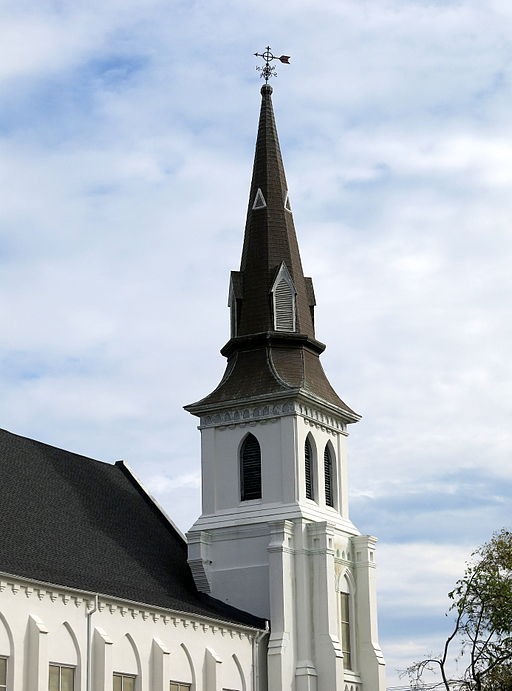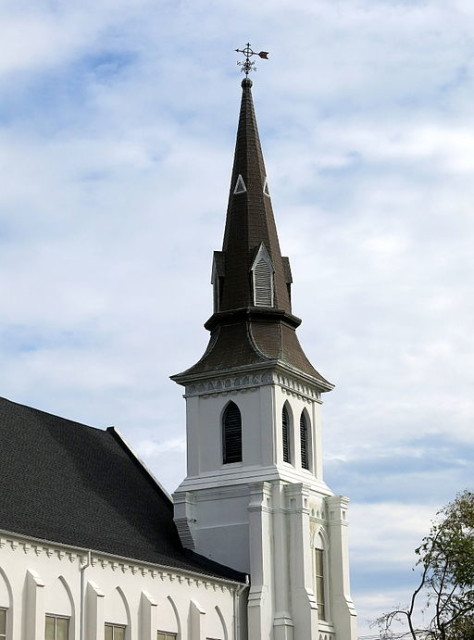One of the strangest byproducts of racism is the refusal to admit its existence. I read these books when I was a young girl, the China Tate series, and in one of them, China practices saying her enemy’s name over and over again: “Heather.” It takes away some of Heather’s power, she feels, to name her.
So why, in America in the year of our Lord 2015, do we have such a hard time naming racism? Dylann Roof is a 21 year-old who wears a jacket emblazoned with the flag of apartheid in South Africa, who tells police investigators he wants to start a race war, who tells racist jokes that no one took seriously, was motivated by hatred of black people when he killed nine of them in a historic black church in Charleston on Wednesday night. When one man begged for his life, Roof said “No, you’ve raped our women, and you are taking over the country … I have to do what I have to do.” He sat in on the prayer service at Emanuel Africa Methodist Episcopal for an hour, listening to the prayers of the people, before he murdered them, fled, was caught, arrested, and confessed.
The one thing we should at least all be united against is racism. The one clear thing in this situation–the thing that came from the shooter’s own mouth–was that he hated black people and sought them out to kill.
Some people seem determined not to accept that. It may be a coincidence that many of those people also happen to be candidates for the Republican presidential nomination, or it may not be. But the blinders–the sheer unwillingness to see and acknowledge racism where it exists–is staggering.
Jeb Bush–who cancelled his planned visit to Charleston after the shooting– told reporter Laura Bassett “‘I don’t know what was on the mind or the heart of the man’ who shot up the church in Charleston.”
Lindsey Graham, the South Carolina senator who is running for President, called Roof “strange and withdrawn,” and “a whacked out kid,” saying “no one [in South Carolina] believes this represents us.”
Rick Santorum called the shooting part of “assaults on our religious liberty,” and called it a “crime of hate. Again, we don’t know the rationale, but what other rationale could there be?”
South Carolina governor Nikki Haley posted a note to Facebook in which she wrote that “we do know that we’ll never understand what motivates anyone to enter one of our places of worship and take the life of another.” It’s especially strange to hear her say that because she was raised in the Sikh religion, a group who were targeted in their place of worship in Wisconsin in 2012 by a white supremacist shooter who killed six people.
The predominant narrative when it comes to white mass murderers in America is that they must be mentally ill, and that their special, severe mental illness made them do what they did. We have come to a place as a country where it’s easier to talk about mental illness than it is to talk about racism. Perhaps we’ve always been in that place–we’ve never done a great job of having public conversations about race and society–but I find myself bewildered by the people who are so quick to insist that we don’t know what was in the heart of Dylann Roof when he killed nine people. He told us what was in his heart.
If we start to talk honestly about race in this country–or, more accurately, if we join the conversations that have been going on for generations–we will have a thorny road ahead, and all white people will have to acknowledge the blood on our hands. But if we don’t talk about, if we deny our legacy and our ugly heritage, this kind of thing will keep happening, and we will keep scratching our heads in false mystification.
Racism is alive and well in America. It’s been thriving since the first days of our statehood, and I don’t see what benefit it could possibly bring for someone to try and deny its existence, both at the individual and societal level. This is proof. Those nine bodies are proof. You shouldn’t need nine bodies to see what’s true. You shouldn’t hide from that conversation, especially if you want to be the President of this country.
The dead are Susie Jackson, 87; Cynthia Hurd, 54; Tywanza Sanders, 26; Sharonda Singleton, 45; Myra Thompson, 59; Daniel Simmons Sr., 74; DePayne Middleton-Doctor, 49; Clementa Pinckney, 41; and Ethel Lee Lance, 70.






